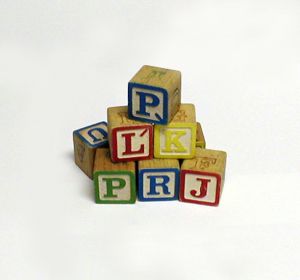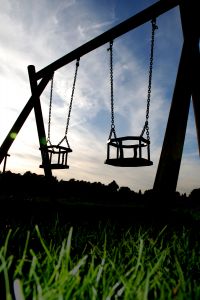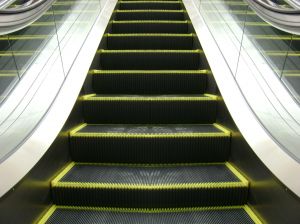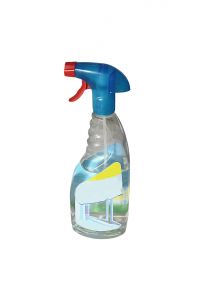By Will Brown, Attorney and David Wolf, Attorney
Published by Child Injury Lawyer Network

Ohio child day care centers are regulated in part by the Ohio Revised Code (O.R.C.) Chapter 5104 – Child Day Care. Like many day care laws throughout the nation, the Ohio child day care law can be confusing. Even the definition of a child day care center is subject to various exceptions and definitions. For instance, there is an exemption from the legal definition of child day care centers in Ohio for a child day care center is operated by a religious institution or a parent of one of the children. Whether the child day care center is regulated by all of the provision of Ohio Revised Code 5104 or not, each child day care center or facility that provides child care in any manner must provide the child with a safe and clean environment while supervising and caring for the children. For private, public, and religious facilities that provide child care, a child should not suffer injuries due to negligent supervision or poor maintenance of the facility. If a child suffers personal injuries as a result thereof, the parents can legal take action in Ohio to recover medical bills and pain and suffering due to the child injuries suffered at the facility. Since the laws can be confusing and facilities, depending on the structure and business set up, are regulated in different ways, it is often times helpful to have the assistance, guidance, counsel and representation of an Ohio child injury lawyer / attorney for these child injury matters.
 New York day care and child care centers are regulated by the New York Office of Children and Family Services. Pursuant to Section 418-1.5, Safety of the New York Codes, Rules and Regulations (NYCRR), child care centers must have railings from the floor or ground to prevent children from falling off of porches, stairs, and decks. In addition, child care centers must provide and maintain barriers to keep children out of and away from unsafe and dangerous area. In particular, a child care center must have barriers in place in areas where there is a swimming pool, drainage ditch, well, hole, wood / coal burning stove, fireplace, and gas heater.
New York day care and child care centers are regulated by the New York Office of Children and Family Services. Pursuant to Section 418-1.5, Safety of the New York Codes, Rules and Regulations (NYCRR), child care centers must have railings from the floor or ground to prevent children from falling off of porches, stairs, and decks. In addition, child care centers must provide and maintain barriers to keep children out of and away from unsafe and dangerous area. In particular, a child care center must have barriers in place in areas where there is a swimming pool, drainage ditch, well, hole, wood / coal burning stove, fireplace, and gas heater. Child Injury Lawyer Blog
Child Injury Lawyer Blog


 Investigators which included pediatric experts conducted an extensive study into the cause of injuries in Atlanta day care centers. While the study was conducted in 1988, its findings are still pertinent today in that the hazardous or dangerous areas in day care centers identified still persist today. These hazardous or dangerous areas that caused injuries to children in Atlanta Georgia day care centers including the following:
Investigators which included pediatric experts conducted an extensive study into the cause of injuries in Atlanta day care centers. While the study was conducted in 1988, its findings are still pertinent today in that the hazardous or dangerous areas in day care centers identified still persist today. These hazardous or dangerous areas that caused injuries to children in Atlanta Georgia day care centers including the following: In Ohio child day care centers, children suffer personal injuries every day while participating in outdoor / playground play or indoor play. Many of these child injuries could be prevented with better and more diligent supervision by child care workers and with better and more timely maintenance of playground equipment and toys. In some instances, the playground equipment or toy is inappropriate for the child’s age group, size, and maturity. For instance, raised platforms with no protective railings or sides would be inappropriate for infants and toddler who have poor balance and safety awareness. Toys with small removable parts or broken toys would also be inappropriate for this age group.
In Ohio child day care centers, children suffer personal injuries every day while participating in outdoor / playground play or indoor play. Many of these child injuries could be prevented with better and more diligent supervision by child care workers and with better and more timely maintenance of playground equipment and toys. In some instances, the playground equipment or toy is inappropriate for the child’s age group, size, and maturity. For instance, raised platforms with no protective railings or sides would be inappropriate for infants and toddler who have poor balance and safety awareness. Toys with small removable parts or broken toys would also be inappropriate for this age group. In Georgia and Other States, day care centers have a duty to report incidents of serious injury and death to the responsible child welfare agency. In Georgia, day care centers have a
In Georgia and Other States, day care centers have a duty to report incidents of serious injury and death to the responsible child welfare agency. In Georgia, day care centers have a  By Stephanie Brown and David Wolf, Attorney
By Stephanie Brown and David Wolf, Attorney In Alabama, child day care centers have a duty to provide children with a safe physical environment as to prevent personal injuries and wrongful death of children in the day care setting. Pursuant to Minimum Standards for Day Care Centers Regulations and Procedures, State of Alabama, Department of Human Resources, facilities have duties and responsibilities as follows:
In Alabama, child day care centers have a duty to provide children with a safe physical environment as to prevent personal injuries and wrongful death of children in the day care setting. Pursuant to Minimum Standards for Day Care Centers Regulations and Procedures, State of Alabama, Department of Human Resources, facilities have duties and responsibilities as follows: